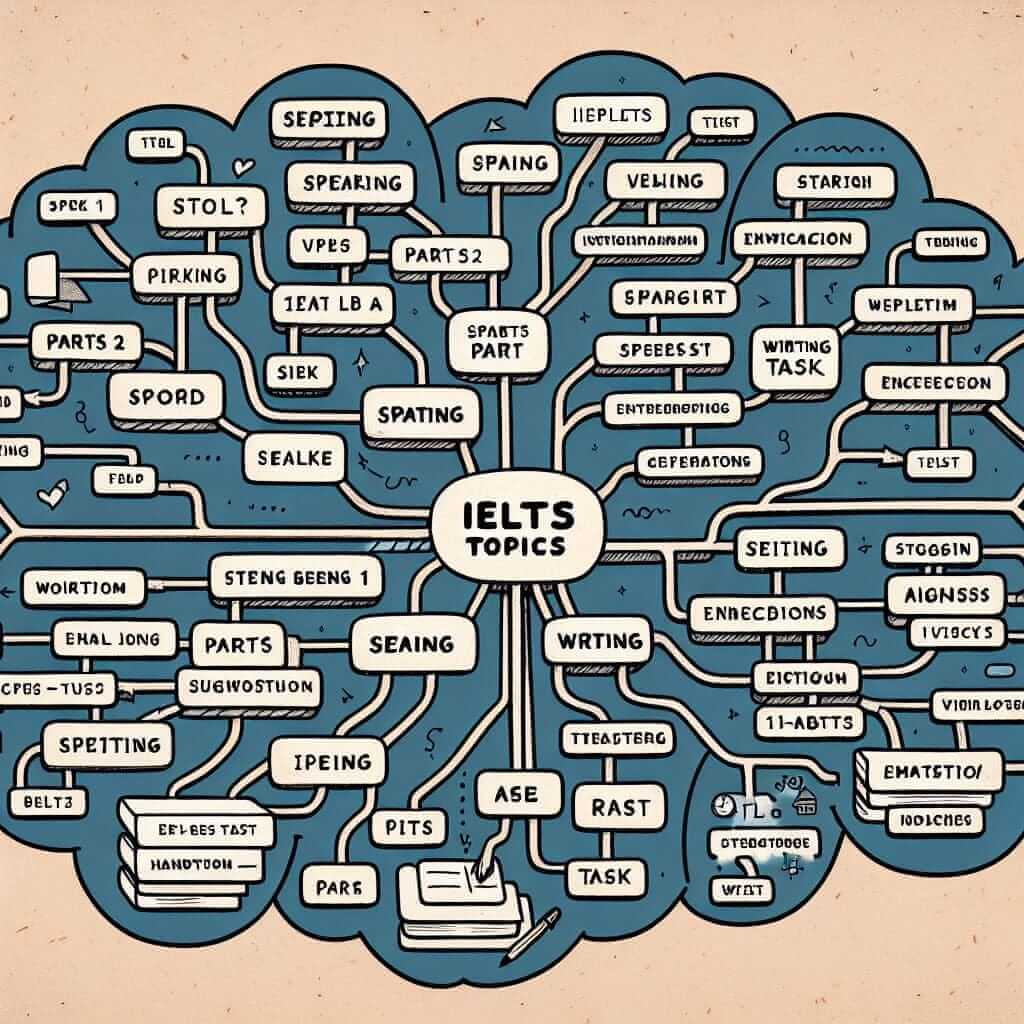As an IELTS instructor with over 20 years of experience, I often encounter students overwhelmed by the perceived vastness of IELTS topics. They worry about encountering unfamiliar subjects and struggling to come up with relevant vocabulary or ideas. The good news is, while the IELTS Speaking and Writing sections do cover a broad range of themes, understanding the underlying structure can significantly ease your preparation.
Understanding IELTS Topic Categories
While there isn’t a definitive “official” list of topics, most resources agree on a set of core categories. These categories are designed to reflect real-world situations and general knowledge. Here’s a closer look:
Speaking Test:
- Part 1: Focuses on familiar topics related to your life and experiences. Expect questions about hobbies, hometown, work/studies, travel, daily routines, and preferences.
- Part 2: Requires a 2-minute monologue on a given topic card. These cards often fall under categories like:
- People (a famous person, someone you admire, a helpful person)
- Places (a memorable place, your ideal city, a place you’d like to visit)
- Objects (a valuable possession, a gift you received, an important invention)
- Experiences (a happy memory, a time you learned something new, a challenging situation)
- Habits and Routines (your daily routine, how you relax, how you stay healthy)
- Part 3: Involves a more abstract discussion related to the Part 2 topic. Be ready to analyze, compare, and speculate on broader issues.
Writing Test:
- Task 1 (Academic): Requires you to summarize and interpret visual data, usually in the form of a graph, chart, diagram, or process.
- Task 2: Involves writing an essay expressing your opinion or discussing both sides of an argument. Common themes include:
- Education
- Environment
- Technology
- Society
- Government
- Health
- Globalization
- Culture
Why Categories Matter More Than Exact Topics
Focusing on broad categories rather than memorizing specific topics has several advantages:
- Flexibility: The same category (e.g., “Technology”) can manifest in countless ways in questions. Understanding the underlying theme equips you to adapt to various prompts.
- Idea Generation: Thinking in categories helps you brainstorm relevant ideas and vocabulary more efficiently.
- Confident Expression: Familiarity with common themes builds your confidence to speak or write about related concepts, even if the specific topic isn’t something you’ve encountered before.

Examples From Real IELTS Tests
Let’s illustrate this with examples:
Speaking Part 2:
- Topic Card: Describe a time you helped someone.
- Category: Experiences
Writing Task 2:
- Essay Prompt: Some people believe that technology has made the world a better place. Others argue that it has created more problems than solutions. Discuss both views and give your opinion.
- Category: Technology
Tips for Effective IELTS Topic Preparation
- Think Broadly: When practicing, don’t limit yourself to extremely specific topics. Instead, focus on brainstorming ideas and vocabulary within the main categories.
- Develop Your General Knowledge: Stay updated on current events and global issues. Reading newspapers, magazines, and online articles can broaden your understanding of various topics.
- Practice Speaking and Writing: Regularly engage in mock speaking tests and write essays on a variety of themes. Seek feedback from experienced IELTS instructors to identify areas for improvement.
Conclusion
Remember, the IELTS isn’t about testing your knowledge of obscure facts. It’s about assessing your ability to communicate effectively on a range of topics. By understanding the key categories and developing strong English language skills, you can approach the IELTS Speaking and Writing sections with confidence and clarity. Good luck with your preparation!